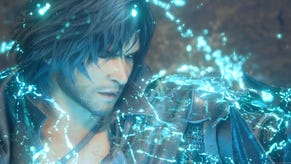"Someone's got to be the Taliban"
Does Medal of Honor really respect the soldier?
After months of controversy, Medal of Honor finally went on sale today. You know, just in case you didn't notice.
From the moment EA announced that the reboot of the franchise would be set in Afghanistan, it didn't take Mystic Meg to foresee the ramifications of the decision.
From Defence Secretary Liam Fox's ill-informed calls for this "thoroughly un-British game" to be banned (he was at least literally correct in that British troops do not feature), to EA's eleventh-hour removal of the Taliban from multiplayer in the face of sustained pressure, the debate has frequently been unedifying, but the game's content demands it.
I am of the view that EA has every right to set its game where and when it chooses and, once passed by the ratings body, the decision rests with individual consumers as to whether they play it or not, whatever their reasons.
Having said that, while I'll defend utterly EA's right to make a game about the war in Afghanistan, the publisher has done itself few favours in defending the decision.
Basing a game on a war that is still raging and killing will clearly and understandably provoke emotive responses. So, when a "disgusted and angry" Fox brands the option to play as the Taliban against US soldiers in multiplayer "tasteless", how does EA respond? By equating it with a childhood game of cops and robbers:
"Most of us have been doing this since we were seven: someone plays the cop, someone must be robber. In Medal of Honor multiplayer, someone's got to be the Taliban."
Pathetic. And strikingly at odds with the stuck-record "respect for the soldier" auto-response robotically repeated in every other press release and interview.
I intended to review Medal of Honor on national radio last Saturday. While in the studio, the news bulletin led with the latest death of a British soldier, Sergeant Peter Rayner, killed in an explosion in southern Afghanistan. We quickly decided that, given the 'light' tone of games coverage, it really wasn't appropriate to feature EA's title.
In 10 years as a journalist this is the first time current affairs have impacted on the straightforward practice of game reviewing. It's familiar territory for other media: television shows can be pulled from schedules if their content clashes uncomfortably with tragic events in the news.
I don't see this in any way as an argument against EA making the game. But this is uncertain ground for the games industry and delicate steps are required.
If you accept the proposition that, if current conflicts can be dramatised in novels and on TV and film, then of course they can in videogames, the important question then becomes: how good a job does EA do of this?
In the original press release announcing Medal of Honor, an EA exec is quoted as saying: "We felt it was important to tell the story of today's war and today's elite soldiers via today's most relevant medium - videogames".
The argument that likely many more people will experience Medal of Honor's story in game form, compared with, say, last year's Oscar-winner The Hurt Locker, is not without merit; but is it a good medium through which to "tell the story"?
To the team's credit, it has avoided the deliberately provocative tactics seen in Modern Warfare 2, notably the infamous 'No Russian' level. It's a more sober, less absurd experience by design that goes out of its way to avoid making any grandiose political statements - indeed the only uncomfortable moment for me came in a needlessly gung-ho CGI sequence at the game's climax.
The terrain of Afghanistan informs the gameplay to a great extent, playing on the confusion of the mountainous environment and the perpetual fear of ambush. Beyond that, however, as Tom noted in his review, it's "just a shooting gallery" - an often excellent, but overwhelmingly generic one.
The clumsily-written, disjointed narrative does not distract from what is a tense, enjoyable, commendable return to form for the series. But it offers little meaningful insight into the conflict itself - if that is indeed what EA hoped to achieve.
Beneath the controversy, Danger Close has produced an uncontroversially good game. But does it advance gaming's cause as a medium for exploring the complex themes of a current conflict? Not by an inch.








-3-31-23-screenshot.png?width=291&height=164&fit=crop&quality=80&format=jpg&auto=webp)




